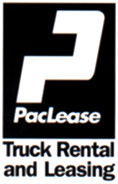Dollars and Sense of Full-Service Truck Leasing
 May 17, 2009 | in
May 17, 2009 | in  Business / Finance
Business / Finance  Full-service truck leasing is a popular option for those choosing to run their own private fleet but don’t want the headaches associated with ownership. It’s expected to gain even more momentum as many companies are looking at leasing for the first time due to ever changing technology and a chronic shortage of qualified truck technicians.
Full-service truck leasing is a popular option for those choosing to run their own private fleet but don’t want the headaches associated with ownership. It’s expected to gain even more momentum as many companies are looking at leasing for the first time due to ever changing technology and a chronic shortage of qualified truck technicians.
“These companies want to off-load responsibility for vehicle maintenance and emergency roadside service,” says Olen Hunter, director of sales for PACCAR Leasing (PacLease), which leases Kenworth and Peterbilt trucks through more than 300 locations throughout North America. “Additionally, they value the flexibility of substitute vehicles to ensure a high level of uptime - critical for those in a JIT operation.
But what about the financial aspects of a lease? What can a lease do for your operation and how does leasing affect cash flow, taxes, and eventually the disposal of equipment?
According to Hunter, with a full-service lease you pay for the use of the truck, as opposed to paying for the truck itself. “That normally means a big savings - up to 25 percent less in some cases - in your monthly lease payment as opposed to financing to own,” he says. “In a lease, the cost of the vehicle, apportioned tax and license, finance charge (set interest rate for the lease term), and calculated cost-per-mile maintenance expenses, minus the calculated residual value determine your monthly payment. That may seem like a lot of charges, but in reality, it’s not. Keep in mind you’re dividing those costs over the lease term - normally five to seven years.”
That lower payment pays immediate dividends to many companies. It frees working capital, plus keeps your bank line of credit open for ongoing operations. This is critical for many companies in growth or expansion mode. Leasing preserves capital that can be utilized for growth, expansion or for purchasing additional inventory- all of which typically provide a higher return on investment when compared to purchasing rolling stock.
Hunter says that not only is improved cash flow a valuable asset, full-service leasing allows for predictability and protection from the unknown. “Unlike truck ownership, where preventive maintenance and repair costs can fluctuate month-to-month, full-service leasing ensures a constant payment every month. It allows for accurate budgeting and preempts cash flow concerns when a truck faces major repairs.”
From a tax standpoint, full-service leasing allows each lease payment to be 100 percent tax deductible, and the lease works as off-balance sheet financing to improve your key financial ratios. In ownership, the IRS limits depreciation on equipment (based on the assigned property class). Tractors are considered a 3-year property class, and straight trucks are 5-year property class. The Modified Accelerated Cost Recovery System (MACRS) established by the IRS, governs how much per year and over how many years the asset is depreciated. An operating lease can provide substantial tax advantages because the lease is 100 percent tax deductible over the life of the lease.
“Lastly,” says Hunter, “companies, like PacLease, have extensive knowledge of resale value, and have a used truck disposal network that can expeditiously sell lease equipment once it’s termed. A traditional full-service lease (closed-end lease) allows the customer to avoid the ups and downs of the used truck market at the time of replacement. The leasing company bears full residual responsibility and exposure.”
To see if leasing is right for you, consider the operational advantages of leasing, plus run some numbers. Most leasing companies have a leasing ROI calculator to help you make an informed decision. With information in hand, you can make the right choice for your business.



Reader Comments